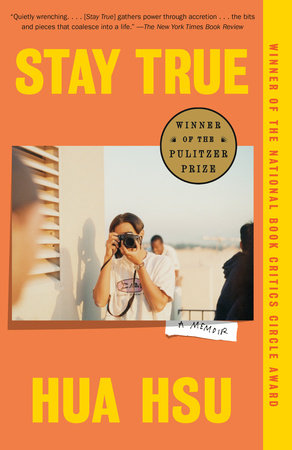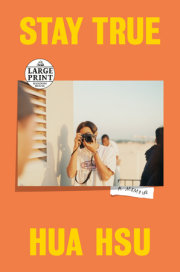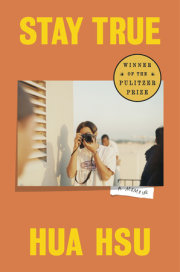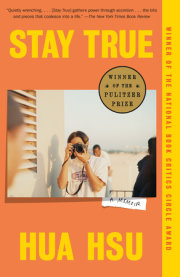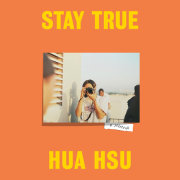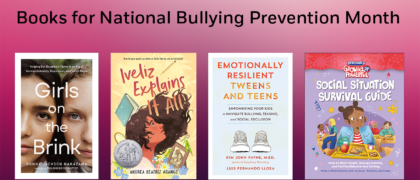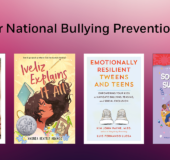Back then, there was no such thing as spending too much time in the car. We would have driven anywhere so long as we were together.
I always offered my Volvo. First, it seemed like the cool, generous thing to do. Second, it ensured that everyone had to listen to my music. Nobody could cook, yet we were always piling into my station wagon for aspirational trips to the grocery store on College Avenue, the one that took about six songs to get to. We crossed the Bay Bridge simply to get ice cream, justifying a whole new mixtape. There was a twenty-four-hour Kmart down 880 that we discovered one night on the way back from giving someone a lift to the airport—the ultimate gesture of friendship. A half-hour drive just to buy notepads or underwear in the dead of night, and it was absolutely worth it. Occasionally, a stray, scratchy pop tune would catch someone’s attention. What’s this? I’d heard these songs hundreds of times before. But to listen to them with other people: it was what I’d been waiting for.
Passengers had different personalities. Some called shotgun with a neurotic intensity, as though their entire sense of self relied on sitting up front. Sammi flicked her lighter all the time, until one afternoon when the glove compartment caught on fire. Paraag always ejected my tapes and insisted on listening to the radio. Anthony, forever staring out the window. You might come no closer to touching another person than in a cramped backseat, sharing a seat belt meant for one.
I had taken my parents’ fear of blind spots to heart, and my head constantly bounded from side to side, checking the various mirrors, noting cars in neighboring lanes, in between sneaking glances at my friends to see if anyone else noticed that Pavement was far superior to Pearl Jam. I was responsible for everyone’s safety, and for their enrichment, too.
I have a photo of Ken and Suzy sitting shoulder to shoulder in the back just as we’re about to embark on a short road trip. They’re chewing gum, smiling. I remember nothing about the trip except the excitement of leaving for someplace else. Finals were over, and before we went our separate ways for summer, a bunch of us spent the night at a house a few hours away from Berkeley. The fun, minor danger of driving in a caravan, as though on a secret mission, weaving through traffic, carefully looking in the rearview to see that everyone else was still behind you. Swerving from lane to lane or tailgating when we were the only cars on the road. I probably spent more time making the mixtape than it took to drive to the house and back. We wouldn’t even be gone for twenty-four hours. But there was the novelty of sleeping bags, no homework, waking up in the morning somewhere unfamiliar and new, and that was enough.
In general, I wasn’t used to seeing Ken in the backseat. We spent a lot of nights driving around Berkeley, his leg propped up on the passenger side door, his eyes scanning the horizon for undiscovered coffee shops, some out-of-the-way dive bar that would become our haunt once we turned twenty-one. He was always overdressed—a collared shirt, a Polo jacket, things I would never wear—but maybe it was just that he was ready for adventure. More often than not, a song’s drive to 7-Eleven for cigarettes.
At that age, time moves slow. You’re eager for something to happen, passing time in parking lots, hands deep in your pockets, trying to figure out where to go next. Life happened elsewhere, it was simply a matter of finding a map that led there. Or maybe, at that age, time moves fast; you’re so desperate for action that you forget to remember things as they happen. A day felt like forever, a year was a geological era. The leap from sophomore to junior year of college suggested unprecedented new heights of poise and maturity. Back then, your emotions were always either very high or very low, unless you were bored, and nobody in human history had ever been this bored before. We laughed so hard we thought we’d die. We drank so much we learned there was a thing called alcohol poisoning. I always feared I had alcohol poisoning. We stayed up so late, possessed by delirium, that we came up with a theory of everything, only we forgot to write it down. We cycled through legendary infatuations sure to devastate us for the rest of our lives.
For a while, you were convinced that you would one day write the saddest story ever.
I remember listening to the Fugees. I remember the chill of the air. I remember the morning after, when everyone emerged from their own corner of the house, and Ken stepped out onto the deck, holding a mug of coffee. How does he know how to make coffee? I thought to myself. I should know how to do that, too. I have a photo of him still as he looks out toward the morning, clouds reflecting in his glasses. He wore glasses only on occasion, in a manner that made him seem serious, grown-up—never a nerd.
After breakfast—what could we have possibly eaten?—we ventured out to the white sand beach, though the weather was no good. I wore a thrift polka-dot button-up with a frayed collar, a brown cardigan, and a striped yellow-and-black beanie. Only my taupe Vans had been manufactured in our lifetime. There’s a photo where I’m squatting down like a catcher, pensively looking for seashells. Ken stands behind, leaning over me and waving gaily to the camera. He wears a flannel-lined navy blue jacket, tastefully baggy jeans, and brown boots. In another picture, he’s perched coolly on a tall rock. “Take one of me and Huascene,” he asks Anthony. He’s affecting a debonair look, while I’m leaning next to him with a goofy smile.
Back then, years passed when you wouldn’t pose for a picture. You wouldn’t think to take a picture at all. Cameras felt intrusive to everyday life. It was weird to walk around with a camera, unless you worked for the school paper, which made picture taking seem a little less creepy. Maybe if you had a camera, you used it during those last few days of school, at parties or as people were packing up, the logic of last-minute cramming applied to the documentation of memories. If someone tried to take your picture, even if it was meant to be silly or spontaneous, you still fussed and awkwardly posed, because there was a finality to it, one or two snaps at most, any more would seem obsessive. A moment would pass, unremarked upon, until months later, when you developed photos you had taken at a concert or birthday party, a proper event worth chronicling, and you discovered some images of friends getting ready to go out, or else a slice-of-life candid intended to burn through the end of the roll. You’d forgotten about this. Later, when photography became ubiquitous, pictures were evidence that you existed at all, day in and day out. They registered a pattern. Looking back, you began to doubt the sequence of events. If, in the absence of proof, anything had happened at all.
When my father moved to Taiwan, my family bought a fax machine. In theory, this was so he could help me with my math homework. I was starting high school, where everything, from what instrument I played to the well roundedness of my transcript, suddenly seemed consequential. A few years earlier, in seventh grade, I tested just well enough to skip two years of math, and I was now paying for it. I had peaked too early. In fact, I was very bad at math. Like many immigrants who prized education, my parents retained faith in the mastery of technical fields, like the sciences, where answers weren’t left to interpretation. You couldn’t discriminate against the right answer. But I preferred to spend my time interpreting things.
Faxing was cheaper than long-distance calling, and far less pressure. There were no halting, wasteful silences. You simply dialed the recipient and fed a sheet of paper through the machine, and a facsimile printed out on the other side of the world. The time difference between Cupertino and Hsinchu was such that I could fax my father a question in the evening and expect an answer by the time I woke up. My homework requests were always marked urgent.
He carefully explained the principles of geometry in the margins, apologizing if anything was rushed or unclear, as he was very busy establishing himself at his new job. I skimmed the explanations and copied down the equations and proofs. Every now and then, I rewarded his quick, careful attention by interspersing the next set of math questions with a digest of American news: I told him about Magic Johnson’s announcement that he was HIV positive, I narrated the events that led up to the Los Angeles riots, I kept him up to date on the fate of the Giants. I told him about cross-country practice, made honest commitments to work harder at school. I listed the new songs I liked, and he would seek them out in Taipei’s cassette stalls, and tell me which ones he liked, too:
I like the November Rain by Guns N’ Roses. The Metallica is also great. I couldn’t enjoy the Red Hot Chili Peppers and Pearl Jam. The old songs reinterpreted by Mariah Carey (I’ll Be There) and Michael Bolton (To Love Somebody) are marvelous. The MTV’s “unplug” is a great idea!
As a teenager, I ultimately had better things to do than fax with my dad. He seized upon anything I mentioned and barraged me with questions. I described one of my classes as boring, and he interrogated my use of the term, observing “lots of ‘challenges’ are emotional ‘boring’ but reasonable ‘useful.’” I mentioned that we were covering the 1960s in history class, and he asked, “You are convinced that Oswald alone killed JFK?”
He always asked me what I thought about things. Maybe it was his attempt to prolong our back-and-forth. He brought up sports, something I didn’t think interested him at all. We were like two guys trading small talk at a hardware store.
Redskin is too much for Bill!?
How’s the Nicks? [Knicks]
It’s Jordan vs. Buckley! [Barkley]
This World Series was spectacular.
Whenever there was a weeklong break from school, my mom and I flew to Taiwan to visit him. Sometimes, I tried to seem consumed by schoolwork so that maybe it made more sense for him to visit us in the Bay Area rather than us going all the way there. This never worked. We spent summers and winters there; weeks would pass when the only people I spoke to were my parents and their middle-aged friends.
I never wanted to go to Taiwan. I couldn’t understand why my parents wanted to go back to a place they had chosen to leave.
My father left Taiwan for the United States in 1965, when he was twenty-one, and he’d be nearly twice as old before he set foot there again. In those days, you left if you were able, especially if you were a promising student. A dozen other physics majors graduated alongside him from Tunghai University, and ten of them ended up pursuing careers abroad. My father flew from Taipei to Tokyo to Seattle to Boston. He scanned the crowd for the friend who’d come all the way from Providence to pick him up at the airport and drop him off in Amherst.
But his friend didn’t know how to drive, so he, in turn, promised to buy lunch for another guy, a man my dad didn’t know, in exchange for a ride to the Boston airport, then Amherst, and finally back to Providence. The two young men greeted my father at the gate, traded backslaps, and rushed him to the car, where they stowed the sum total of his worldly possessions—textbooks and sweaters, mostly—in the trunk. Then they set off for Boston’s Chinatown, a portal back to a world they had left behind. Camaraderie and goodwill were fine enough reasons to drive hours to fetch someone from the airport; just as important was the airport’s proximity to food you couldn’t get in small, northeastern college towns.
In the years that followed, a willing maroon far from home, my father acquired various characteristics that might have marked him as an American. He lived in New York, witnessed and participated in student protests, and, according to photographic evidence, once sported long hair and vaguely fashionable pants. He arrived as a devotee of classical music, but within a few years his favorite song was the Animals’ “House of the Rising Sun.” He subscribed very briefly to The New Yorker, before realizing it wasn’t meant for newcomers like him and requesting a refund. He discovered the charms of pizza and rum raisin ice cream. Whenever a new grad student was set to arrive from Taiwan, he and his friends piled into the nearest available car to pick them up. It was a ritual, and it was a type of freedom—on the road and possibly eating well—that was not to be passed up.
If Americans at the time knew anything about Taiwan, it was as an obscure island in the vicinity of China and Japan, where cheap plastic things were manufactured for export. When my mother was a child, her father set up a chalkboard in the family’s kitchen where he would write a new word in English each day. World War II had interrupted my grandfather’s medical studies, so he became a civil servant. He wanted slightly more for his children. My grandparents had their children choose American names, like Henry or Carol. The children picked up the basics of English, this bizarre, new language, which they might use to speak a new future into being. They learned about the rest of the English-speaking world through a subscription to Life magazine, where my mom first discovered the existence of something in America called Chinatown.
When she arrived in the United States in 1971 (Taipei–Tokyo–San Francisco), the family who picked her up had the decency to wait a day, so she could recover from the long journey, before taking her to eat Chinese food. She was on her way to study public health at Michigan State. Soon after she got to East Lansing, signed a lease, enrolled in classes, and bought a stack of nonrefundable textbooks, she received a message from her father. It turned out that as she was making her way to Michigan, a letter had reached the family home in Taipei informing her that she’d been accepted to the University of Illinois at Urbana-Champaign, her top choice. So, my mother recovered whatever tuition she could from Michigan State and quickly departed for Illinois.
Copyright © 2022 by Hua Hsu. All rights reserved. No part of this excerpt may be reproduced or reprinted without permission in writing from the publisher.

